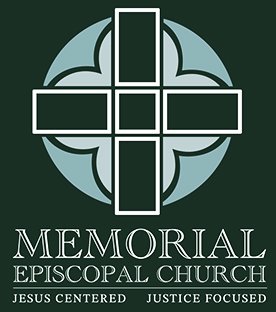The View from Bolton Street
Famous Last Words: Jesus’ Farewell to His Disciples
Above the main stained-glass window in the old Virginia Theological Seminary (VTS) Chapel, under the watchful gaze of the Robert E. Lee Tiffany window(with Lee as Moses), behind the altar rail of Liberian wood (where we sent Black Episcopalians post Civil War), easily visible from the balcony built for ‘domestics’ and servants of students and faculty of the Seminary (The Seminary was a segregated institution), were the words: “Go ye into all the world and preach the gospel.” These words, from the Gospel of Mark’s account of the Great Commission and the Ascension of Christ, greeted generations of seminarians as they entered the chapel to worship, surrounded by a symbology that reflected a particular kind of mission. A mission based on manifest destiny, that American white protestants knew what was best and everyone else needed to catch up, a mission that left out a lot of important voices. These words in particular are interesting because they are from one of the few sections of the gospels that scholars almost universally agree is not original and was added later.
A corrupted gospel on the wall informed a corrupted gospel preached in the architecture and furnishings of the chapel. For many years, the chapel played a part in the adoration of the confederacy, colonialism and white supremacy. These were imperfect people worshipping in an imperfect place. Even so, the seminary also served to educate generations of clergy, some better, some worse, but all committed to proclaiming the Gospel of our Lord and Savior Jesus Christ. Many, maybe even most of whom have been faithful servants of Christ and the Church. Champions of civil rights, of women’s rights, of peace and non violence, worshipped and studied in this place.
What do we do with our complicated legacy?
The Chapel at VTS comes to mind today as we celebrate the Feast of the Ascension. As I reflect on the words of Christ as he is raised up, I am pulled back to an October afternoon, watching smoke and flames rise over that chapel as it was consumed, in record time, by a fire. There were many tears that day, Tears of anger and anguish. Of frustration and shame. But over time, there has been a sense of permission to move on. To rise out of the ashes with an intentionality to acknowledge and move away from a tradition rooted in slavery, colonialism, racism and white supremacy and instead embrace a new perspective on our Christian faith.
This year for the Feast of the Ascension, we do not use the text from Mark, but rather the account from Luke and Acts. It is the same story. Jesus ascends to heaven, but not before commissioning his followers to continue his work in the world. However, the language in Acts is different. Instead of being sent out to proclaim the gospel, the disciples are called to be witnesses “in Jerusalem, in all Judea and Samaria and to the ends of the earth.” What does it mean to be a witness? A witness testifies to what they have seen, they tell the truth, and they do not lie. So, the disciples are sent out to witness to the life, death, resurrection, and ascension of Christ.
But a witness also is primarily an observer. They watch, they absorb, they record, and finally, they share what they have seen with others. As witnesses then, our work perhaps is not to go and fix things, to assume we have the answers, or to go make things right. Rather it is to come with questions, with curiosity, and with humility to see how the Gospel is reflected in other places and spaces.
It is quite a different perspective! Instead of going and doing to others, we go and listen, observe, and share with others. In my own walk of faith, I have shifted my approach to ministry from going and doing TO OTHERS to seeking to BE WITH and SHARE with others.
As we prepare to gather tomorrow for Ascension day, to worship, sing, and break bread (well…lasagna) we are offered an opportunity to hear Jesus’ “last words” again for the first time. "It is not for you to know the times or periods that the Father has set by his own authority. But you will receive power when the Holy Spirit has come upon you; and you will be my witnesses in Jerusalem, in all Judea and Samaria, and to the ends of the earth."
I am not so naive to think that the destruction of one church, or one monument, will make any of us better. These are nothing more than symbols and it is what we do with the symbols that matters. But when we are challenged to rethink the symbology and meaning we give to places and spaces in our lives, when we our challenged to consider what really matters for us, we have an opportunity to reorient our lives towards the Divine.
As those flames rose over the chapel, an instituiton was invited to consider how it would define its legacy for another generation. As Christ rose up to heaven, he invited the disciples to define for the whole world, what the Christian faith would be. Today we are invited to consider what this ascension moment means for us.
Be a witness. Don’t be beholden to imperfect gospels or the imperfect story being told about your life. Embrace the opportunity to define yourself not as the world does but as Christ would, and go and share that same grace and love with the world. Listening. Learning. Sharing. Hoping.
Amen.


